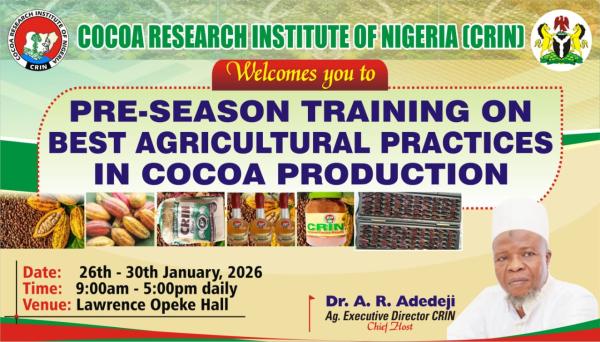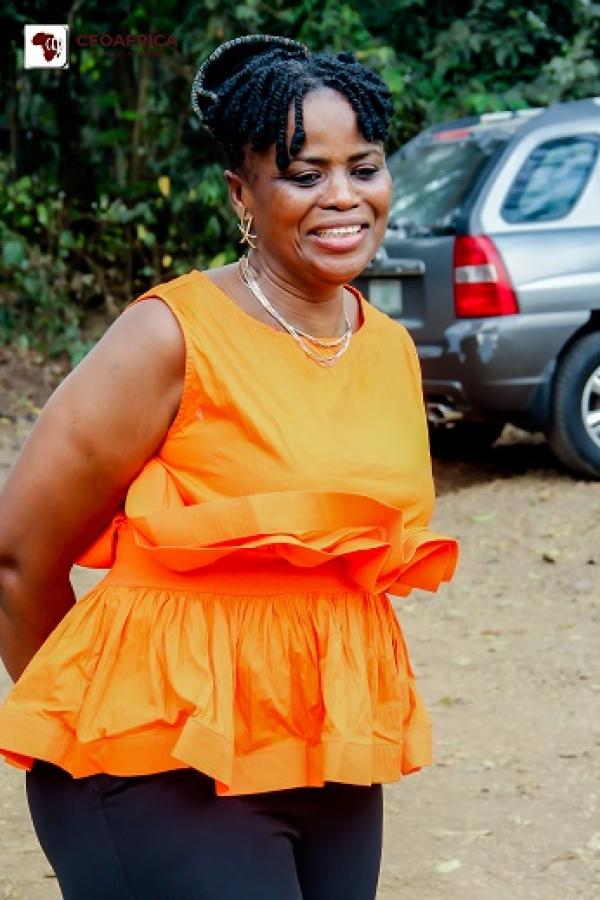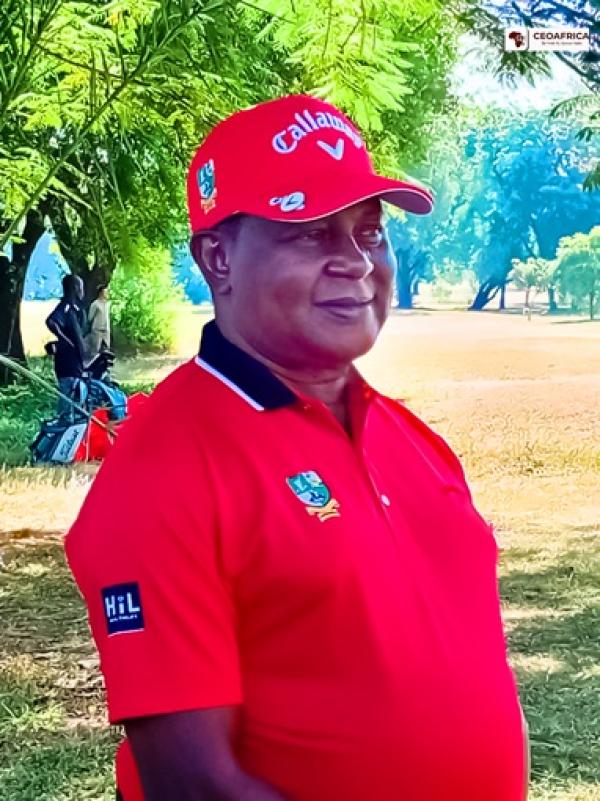
The Faculty of Veterinary Medicine, University of Ibadan has hosted the first nationwide physical continuing education programme, of the Veterinary Council of Nigeria (VCN), with the theme, “Beyond Boundaries: Fishing in the Ocean of Multilateral Organisations”.
The event which was attended both physically and virtually was held on Monday, October 24, 2022.
According to the organisers, similar event has been held for 25 years; however, it has always been at regional levels and the nationwide sessions, held previously, were virtual.
During the event, the President, Veterinary Council of Nigeria, AIG Aishatu Abubakar Baju, who attended virtually, thanked all the participants and members of the council for their consistent commitments and sacrifice towards the growth of the industry; she however, stated that renewal of Annual Operating Licence of veterinary practitioners will be based on the accumulation of at least 18 points.
The Vice Chancellor, Prof. K.O. Adebowale, who spoke through his deputy (Academics), Prof. Aderonke M. Baiyeroju, welcomed all the guests and expressed his delight in hosting the august event, stating his delight in the council’s diligence in its activities.
Meanwhile, in her remarks, the Dean, Faculty of Veterinary Medicine of the university and first professor of Veterinary Biochemistry in Africa, Prof. Eunice Olufunke Ola-Davies, who also hosted the event, explained that time has come for veterinary health professionals to fully appropriate the abounding opportunities available to them.
“It is high time veterinary experts got to know that Veterinary Sciences is not just all about domestic animals like cats, dogs, cow and so on. We are also involved in Wildlife Medicine, Aquatic Medicine and Public Health. That is why this event involves wildlife, aquatic, public health and equine sessions. Participants are being well-trained. They should apply what they have learnt,” she said.
Speaking on the contribution of Veterinary to overall health of the society, she said, “We are also involved in World Health. Many of the diseases we are fighting now are transferred from animals to man. Veterinary Medicine contributes immensely to the overall health and wealth of the society.”
She also noted that about 400 attended physically while about 600 attended virtually, expressing her delight in hosting the first nationwide event, with the university.
In her keynote speech, the immediate past Deputy Vice Chancellor, Research, Innovation and Strategic Partnership of the University of Ibadan, Prof. Olanike Kudirat Adeyemo, declared that Veterinary Medicine is indispensable to addressing the challenges being faced by the world in the 21st century.
The chairman of the council’s Continuing Education Committee, Dr Gani Enahoro, who also planned the event, explained how the points are accumulated, as stated by the President for the renewal of the Annual Practicing Licence.
According to him, such big events organized by the council attracts up to 12 points, while other private training events approved by the council has two points, stating that veterinarians are required to earn 18 point, as the president said, while para-veterinarians require just nine points.
In his own speech, on the topic, “Veterinary Administartion in Nigeria, Emerging Trends and Adaptive Strategy”, Dr Frank Abudei explained that administration involves regulation, conciliation, balancing, compromise and service provision; as such, administrators need to have both personal and communication skills while lamenting low engagement of veterinary scientists by governments, especially in the southern part of the country.
Speaking at one of the breakout sessions, Prof. David Eyarefe, who spoke on “Gastrointestinal Obstruction: What the Small Animal Clinician should Know”, advised that veterinarians should make their clients understand the veterinary patients as human patients, while soliciting advocacy for fund raising towards treatment of critically ill patients, whose owner cannot afford such.
Speaking on “African Swine Fever: Difficulties in Containing the Disease in Nigeria”, Prof. Lushakyaa Allam of the Ahmadu Bello University, Zaria, lamented that farm management habits of Nigerian livestock farmers, as well as the government’s indifferent attitude, will further make the country unable to conquer the disease as Spain and Portugal did.
A former director at the University of West Indies, in the United States of America, Prof. Godwin Isitor, who spoke on “Cost-effective Aquaculture Operation within an Integrated Farming System for Veterinarians”, said that veterinarians who wish to go into fishery should develop production mindset rather than merely health concerns.
Dr Ramon A. Moshood Adedokun, who spoke on “Challenges and Mitigations of Equine Practice in Nigeria”, stressed that the government has not been playing her roles, leading to inadequacy of skilled and well-trained professionals in the sector.
In his own speech, Dr Jimmy Johnmark, while speaking on “Pushing the Boundaries of Modern Day Dairy Farming: A Veterinarian’s Perspective”, explained that veterinary doctors have the solution to the country’s low milk production, lamenting that the country produces roughly one million tons every year, despite having the capacity to produce nearly one billion, with the right steps taken.
Dr Jones Okoye added that poultry farming could be geared towards raising birds in a manner that reduces the incessant use of drugs, as those antibiotics pose serious health concerns for those who consume the birds; he spoke on “Poultry Production: Importance of Good Intestinal Health Management”.
Speaking on “Wildlife Medicine Challenges and Prospects in the One Health Space”, Dr Egbetade Adeniyi, of the Federal University of Agriculture Abeokuta, said that there is need to improve the undergraduate programme on wildlife studies.
According to a participant and former Chairman, Nigerian Veterinary Medical Association, Delta State Branch, Dr Asidi Kenneth, the programme has been very rich and educative and he expects more impacts in the next edition.
Another participant, Dr (Mrs) Obiora Modupe Titilayo, such refresher courses are very necessary so that veterinarians will always remember what they may have forgotten, as well as learn new things in the practice.
President, Commonwealth Veterinary Association, who anchored the event, Dr Tunji Nasir, also explained that the new policy on 18 points takes effect from next year.
Other dignitaries at the event include Prof. Jegede of the University of Abuja, Prof. Daniel Wilson, Prof. Sambo Ismail, Dr Dotun Fadipe, Dr Femi Kayode, and a host of other acdemics, researchers, veterinary practitioners, students and other stakeholders.




















